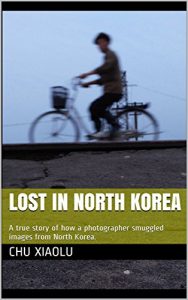North Korea never ceases to amaze. There has been intense interest in the power succession among Kim dynasty, a three-generation lineage of leadership descending from the country’s first leader Kim Il-sung and passing on to his son Kim Jong-il and grandson Kim Jong-un. Despite a global trend of democratization, North Korea’s uniqueness lies within its idiosyncratic capacity, a cult of personality closely tied to the state philosophy of Juche, to normalize the peculiar.
North Korea is not an easy country to observe. Few foreign journalists are allowed in, and then with official minders and strictly limited itineraries. Computers and Internet are rare. TV and radios receive only approved channels. To get a sense of how ordinary citizens live, writers usually rely on the accounts of defectors. A number of high profile autobiographies by defectors and books by writers with first-hand experience of life inside North Korea, has kept sights firmly on individual stories and human details.
This book written by photographer of Getty Images, Xiaolu CHU, follows the line and focuses on the people. He confirms that he was only exposed to a small part of the lives of North Koreans. But with no doubt he has contributed to revealing the true scenery of this country and its people, through photography. Bypassing the regime and reaching out to the North Koreans, he offers as many pieces of the puzzle as he could with excellent pictures. It is an attractive and readable book for those curious about the North Korean life.
A new North Korea is slowing taking shape with social transformation. People engage in trade and smuggling, provide all kinds of services for fees, and bribe officials, which would be seen as offences two decades ago. On the face of it, China and North Korea have been walking different paths since China’s reform era, while one embraces a market economy and the other no. In reality, North Korea relies heavily on China for economic aid. Since North Koreans have much more exposure to and better knowledge of the outside world, especially China, combined with the new experiences of the market place, a double thinking would be spread to the North Koreans, recognizing the gap between propaganda and reality.
Pictures are hard to get, and the trip is not an easy task. Completion of this book would be impossible without help and support from many people. We are grateful for the couples of Mr. X and Yu for their company during the journey. We like to acknowledge the help of Ms. Nina Vickery for the review work. To all those people met in the DPRK, we wish them a happy and safe life.
North Korea is not an easy country to observe. Few foreign journalists are allowed in, and then with official minders and strictly limited itineraries. Computers and Internet are rare. TV and radios receive only approved channels. To get a sense of how ordinary citizens live, writers usually rely on the accounts of defectors. A number of high profile autobiographies by defectors and books by writers with first-hand experience of life inside North Korea, has kept sights firmly on individual stories and human details.
This book written by photographer of Getty Images, Xiaolu CHU, follows the line and focuses on the people. He confirms that he was only exposed to a small part of the lives of North Koreans. But with no doubt he has contributed to revealing the true scenery of this country and its people, through photography. Bypassing the regime and reaching out to the North Koreans, he offers as many pieces of the puzzle as he could with excellent pictures. It is an attractive and readable book for those curious about the North Korean life.
A new North Korea is slowing taking shape with social transformation. People engage in trade and smuggling, provide all kinds of services for fees, and bribe officials, which would be seen as offences two decades ago. On the face of it, China and North Korea have been walking different paths since China’s reform era, while one embraces a market economy and the other no. In reality, North Korea relies heavily on China for economic aid. Since North Koreans have much more exposure to and better knowledge of the outside world, especially China, combined with the new experiences of the market place, a double thinking would be spread to the North Koreans, recognizing the gap between propaganda and reality.
Pictures are hard to get, and the trip is not an easy task. Completion of this book would be impossible without help and support from many people. We are grateful for the couples of Mr. X and Yu for their company during the journey. We like to acknowledge the help of Ms. Nina Vickery for the review work. To all those people met in the DPRK, we wish them a happy and safe life.






